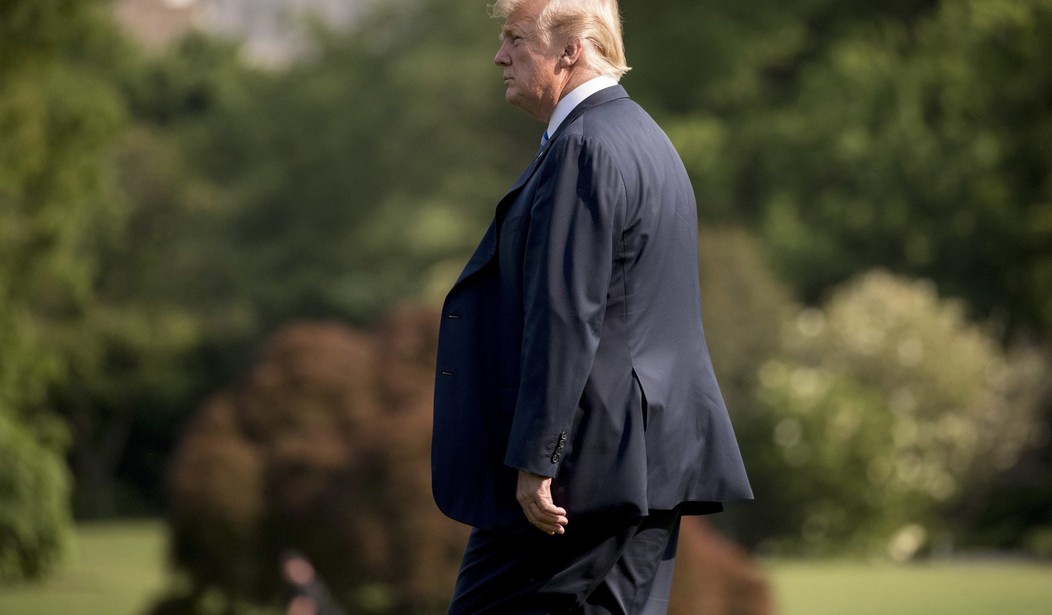ARLINGTON, Va. – New York Times columnist David Brooks said President Trump’s support “has not waned at all” and that he likes “a lot of things” the president has done so far in office.
Brooks, who called for Republicans to reject Trump during the 2016 presidential election, was asked if he approves or disapproves of Trump’s job performance.
“As for Trump approval, I have to say a number of things. One, I think it’s appalling. As a cultural determinist, I pay a lot of attention to norms and social fabric and I think he’s pretty good at making friend-enemy distinctions and poking a red-hot wound into every divide we have in this country and making it worse, and so I place a high value on social norms and cultures,” Brooks said in response to a question from PJM during a Conversations with Tyler event at George Mason University on Monday evening.
“I have to say, for my friends who are Trump supporters, they say, ‘I don’t really pay attention to that stuff. I just look at the economy. I look at some of the things I like that he’s done.’ And there are a lot of things I like that he’s done and the economy has not tanked,” he added. “And I expected his support to wane as the scandals mounted, and it has not waned at all.”
Brooks applauded Trump’s decision to move the U.S. Embassy in Tel Aviv to Jerusalem.
“I think that was the right move. I mean, Jerusalem is clearly the capital of Israel so we should recognize reality,” Brooks said.
The columnist explained that he was against the Republican tax reform plan that Trump signed into law, but said the corporate tax cut, which was part of the overall package, has had beneficial effects on the economy.
“I was against it because it seemed to me not the tax reform I always dreamed of and it seemed to me a way to basically take money out of blue pockets and put it into red pockets, and I didn’t want to see our tax system turned into a tribal weapon and I didn’t think corporate tax cuts were the way to increase growth,” he said.
Brooks mentioned a Bloomberg report that suggested capital expenditures had risen since passage of the tax reform package.
“The story in Bloomberg that suggested that since the corporate tax cuts that capital expenditures had risen 37 percent and stock buybacks have only risen 16 percent, which suggests that the corporate rate cuts are producing more economic activities than a lot of economists had suggested they would,” he said. “So I’m open to the fact that a lot of Trump policies may have surprisingly beneficial effects, but it will be very hard to persuade me that they are going enough to justify the harm he’s doing to our democracy.”
PJM asked Brooks if he thinks Democrats are going to win back the majority in the House in the 2018 midterm elections.
“I know a lot about the future. I mean, I would have to say they would, simply because if you run the raw numbers, they need to pick up, what, 23, 24 seats and that happens 50 percent of the time. And when the president’s approval is under 50 [percent] it happens 86 percent of the time, so just by that raw number you would think they have a pretty good shot at taking the House,” he said. “I think it’s much less likely they will take the Senate, just the way the geography works and the candidates Republicans have chosen.”
During the discussion, Brooks was asked if Trump should win a Nobel Peace Prize for North Korea denuclearization negotiations. At a recent campaign rally, his supporters were chanting “Nobel.”
“No – the Nobel Prize for literature, maybe, but no,” Brooks said to laughter from the audience.
Moderator Tyler Cowen, the Holbert L. Harris chair of Economics at George Mason University, said that presidents are often chosen in reaction to their predecessor, naming Jimmy Carter and Ronald Reagan as examples. Brooks said he hopes the electorate’s reaction to Trump is a “boring manager,” naming former Indiana Gov. Mitch Daniels as an example.
“The reaction would be, OK, we’ve got a narcissistic blowhard in the White House, we’ll go back to, I could use like a boring manager like Mitch Daniels who was governor of Indiana, now president of Perdue,” he said. “When he got into office as governor, the line at the DMV was an hour and 20 minutes. When he got done, it was 8 minutes and I’m like, for president, I’ll take that, that’s what I’d like, just somebody to manage things.”









Join the conversation as a VIP Member